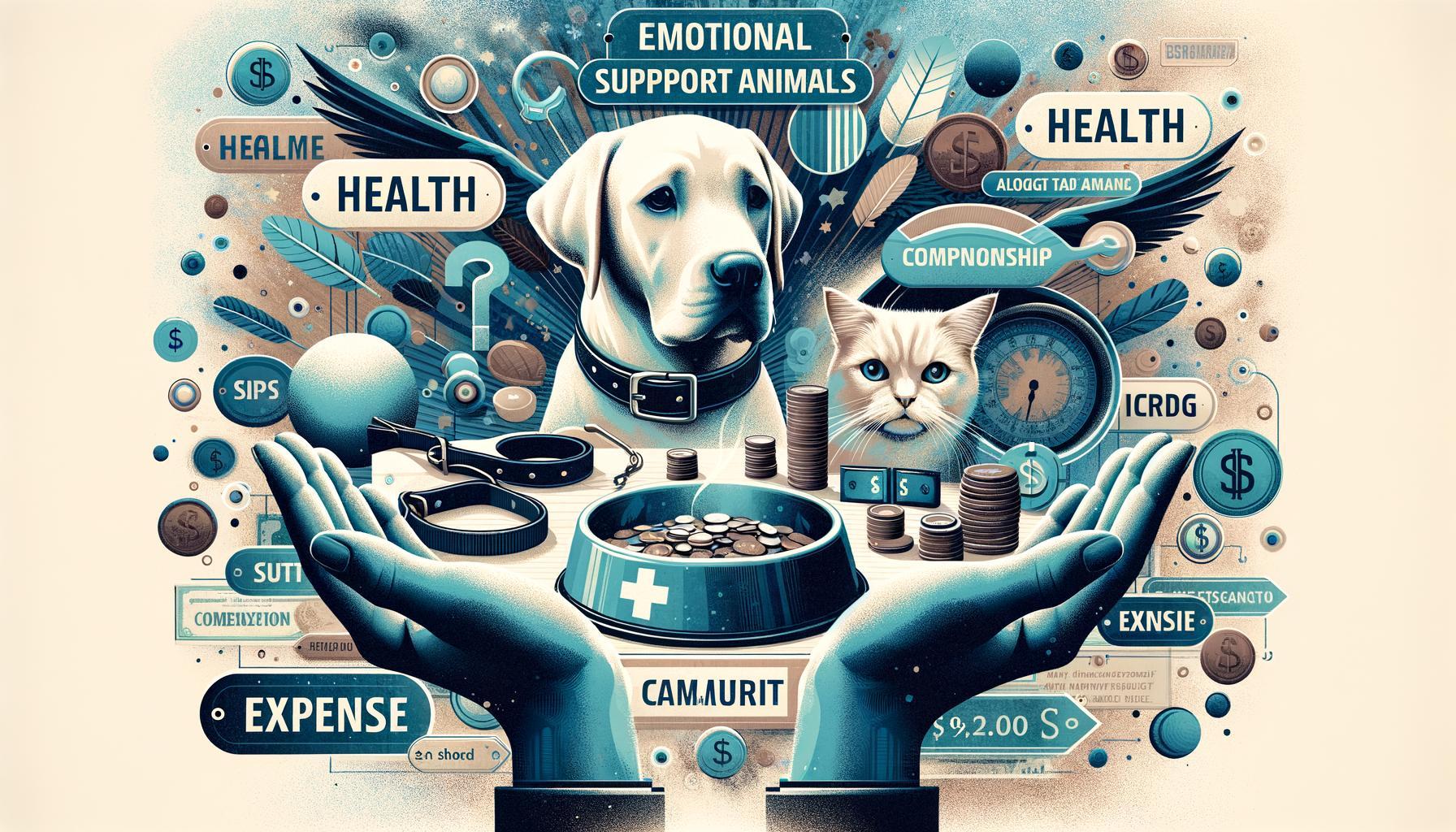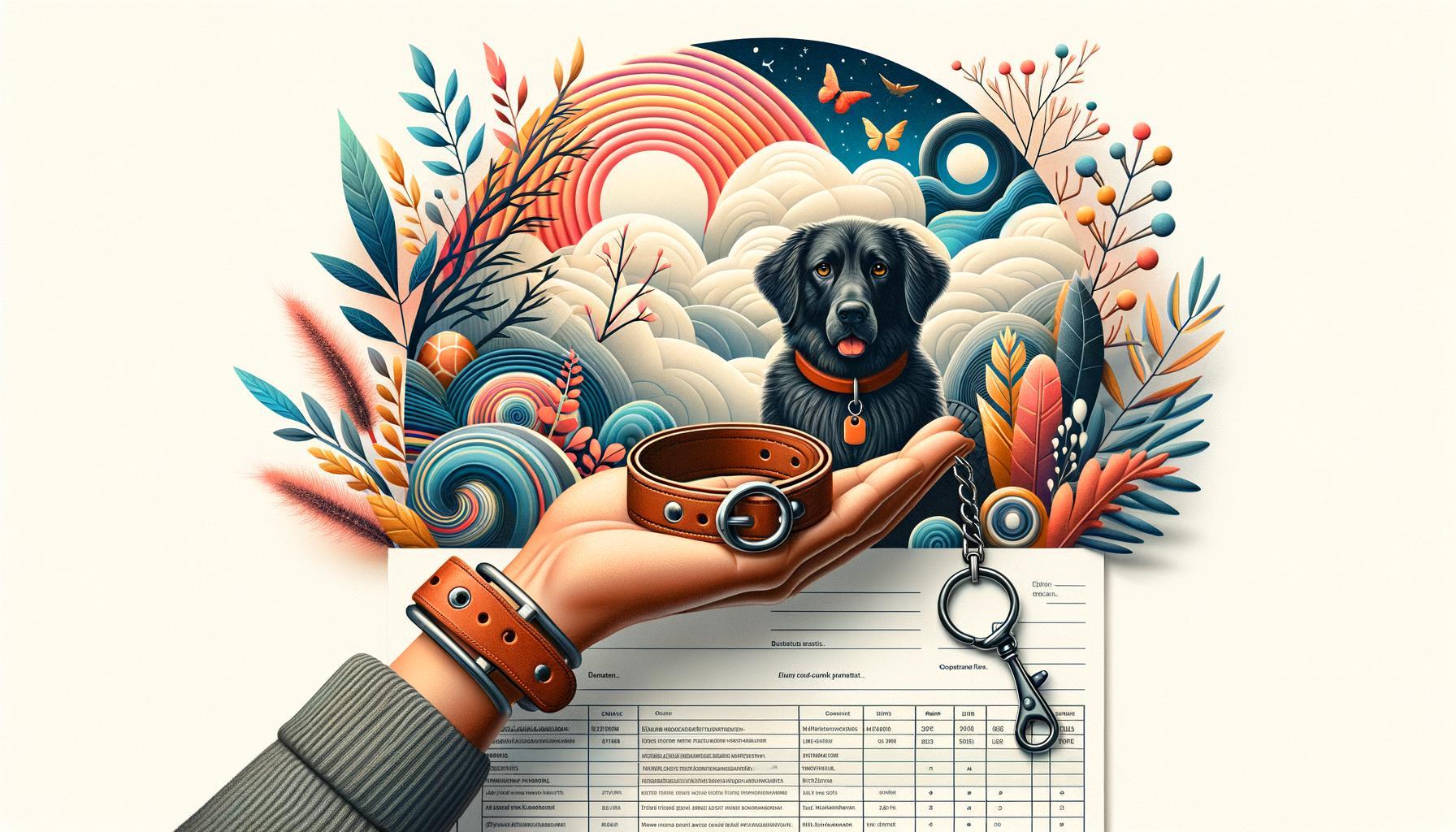In the often tumultuous journey of life, emotions can sometimes spiral out of control, leaving us yearning for comfort and balance. Enter the Emotional Support Animal (ESA)—a loyal companion that offers solace and stability without uttering a single word. The concept of ESAs has carved a niche in the mental health landscape, offering countless individuals the opportunity to regain their footing. Yet, as enchanting as the idea of an unwavering furry or feathered friend by your side may be, there are practicalities to consider. One question looms large: How much will this vital companionship cost you? This article will unravel the expenses tied to welcoming an ESA into your life, guiding you through the financial maze while keeping the emotional benefits firmly in sight. Prepare to embark on a journey that balances the heart and wallet with equal care.
Table of Contents
- Understanding the Basics: What Qualifies as an Emotional Support Animal
- Initial Investment: Costs Involved in Acquiring Your Emotional Companion
- Healthcare and Maintenance: Ongoing Expenses for Your Support Animal
- Navigating Legalities: Pet Deposits, Fees, and Housing Regulations
- Saving Smart: Practical Tips to Minimize Your Costs
- To Conclude
Understanding the Basics: What Qualifies as an Emotional Support Animal
When diving into the realm of **Emotional Support Animals (ESAs)**, it’s crucial to understand what sets them apart from other categories like service animals or regular pets. An ESA primarily provides comfort and support through companionship, helping alleviate symptoms of mental or emotional disabilities such as anxiety, PTSD, or depression. Unlike service animals, which require specific training to perform tasks, ESAs don’t necessitate specialized training. This unique role is legally recognized under federal law, principally through the Fair Housing Act and the Air Carrier Access Act, allowing ESAs to live with their owners in ‘no pets’ housing and fly with them in the cabin on airplanes at no extra cost, albeit with some recent legislative changes.
Choosing an ESA involves more than simply selecting your favorite furry friend. While dogs and cats are the most common choices, other animals can also qualify as emotional support companions, including birds, rabbits, and even miniature horses. Key factors in determining an appropriate ESA include the animal’s temperament, size, and compatibility with your lifestyle. Here’s a glance at some typical candidates and their qualities:
- Dogs: Known for their loyalty and trainability. Ideal for owners in need of frequent companionship due to their social nature.
- Cats: Independent yet affectionate, making them suitable for those who may not be able to provide constant attention.
- Birds: Intelligent and often capable of mimicking human speech, offering great emotional connection in a small, manageable size.
- Rabbits: Gentle and quiet, suitable for smaller living spaces and providing a calming presence.
| Animal Type | Key Features |
|---|---|
| Dog | Loyal, Social, Trainable |
| Cat | Independent, Affectionate, Low Maintenance |
| Bird | Intelligent, Small, Talkative |
| Rabbit | Gentle, Quiet, Suitable for Small Spaces |
Initial Investment: Costs Involved in Acquiring Your Emotional Companion
Welcoming an emotional support animal (ESA) into your life entails various initial expenses. First and foremost, consider the **adoption fees**, which can vary widely depending on the animal and the source. For instance, adopting a dog from a shelter might cost between $50 and $300, while buying from a breeder can skyrocket the initial cost to $1,000 or more. Cats generally fall in a similar range, though smaller pets like rabbits or guinea pigs typically come with lower adoption fees. It’s also essential to account for any **vaccinations**, **spaying or neutering**, and **initial veterinary check-ups** to ensure your new companion starts off on a healthy paw.
Beyond the adoption and medical expenses, there are several other necessities to consider. These include **essential supplies** such as food and water bowls, toys, bedding, and **training tools**. Here’s a quick overview to give you an idea:
| Item | Estimated Cost |
|---|---|
| Food and Water Bowls | $10 – $50 |
| Leash and Collar | $15 - $60 |
| Bedding | $20 – $100 |
| Toys | $5 – $30 |
While these investments are crucial, don’t forget the intangible costs such as your **time and energy**. Training your ESA can be a rewarding experience but requires a considerable amount of patience and dedication.
Healthcare and Maintenance: Ongoing Expenses for Your Support Animal
An often-overlooked aspect of having an emotional support animal is the continuous need for healthcare and upkeep, which are crucial to ensure your furry companion stays healthy and happy. Regular veterinary check-ups, vaccinations, and potential treatments for ailments can add up quickly. You might also need to invest in **flea and tick medication**, **heartworm prevention**, and **dental care** to maintain your animal’s overall well-being. These healthcare necessities can vary based on the type and breed of your support animal, making it essential to consult with a veterinarian for a tailored healthcare plan.
Beyond medical care, other **ongoing expenses** include grooming, food, and general maintenance to keep your support animal content and comfortable. Grooming is not just about appearances; it’s also about preventing skin issues and infections. Depending on your animal, you may need to budget for regular grooming appointments. Additionally, consider high-quality food that meets your pet’s specific dietary needs, which can range from everyday kibble to specialized nutrition plans. Here are some common ongoing expenses for healthcare and maintenance:
- **Routine Vet Visits**
- **Vaccinations**
- **Flea, Tick, and Heartworm Prevention**
- **Dental Care**
- **Grooming Services**
- **High-Quality Food**
| Expense | Estimated Cost Range |
|---|---|
| Routine Vet Visits | $50 – $200 |
| Vaccinations | $20 – $70 per shot |
| Grooming Services | $30 – $90 per session |
| High-Quality Food | $20 – $60 per month |
Navigating Legalities: Pet Deposits, Fees, and Housing Regulations
In the complex world of rental agreements and housing regulations, understanding the financial implications of having an emotional support animal (ESA) is essential. Typically, landlords are legally restricted from charging a **pet deposit** or **pet fees** for ESAs, as these animals are not considered pets under the Fair Housing Act (FHA). Still, it’s not uncommon for tenants to get tangled in the web of legal nuances or face uninformed landlords who might try to impose these fees.
Here’s a quick breakdown of what to consider:
- **Pet Deposits:** Generally waived for ESAs.
- **Monthly Pet Fees:** Not applicable to ESAs under FHA.
- **Reasonable Accommodation:** Lease may require documentation from a licensed mental health professional.
- **Property Damage:** Tenant responsibility if the ESA causes any damage to the property.
Understanding these distinctions can save you both time and money. If ever in doubt, a consultation with a legal professional can clarify your rights and obligations.
Saving Smart: Practical Tips to Minimize Your Costs
When considering adding an emotional support animal (ESA) to your family, it’s crucial to look into the potential expenses to ensure a balance between emotional well-being and financial health. **Initial costs** such as adoption fees, vaccinations, and essential supplies can add up quickly. Adopting from a shelter is generally more affordable than purchasing from a breeder. Here’s an outline of typical initial expenditures for a new ESA:
| Item | Approximate Cost |
|---|---|
| Adoption Fee | $100 – $300 |
| Vaccinations | $75 – $150 |
| Basic Supplies (bed, leash, toys) | $50 - $100 |
For **ongoing costs**, you must be prepared for regular expenses such as food, grooming, and veterinary care. Many times, these costs are **overlooked**, yet they form a significant portion of your budget. Key elements to keep in mind include:
- **Quality Food:** Healthy nutrition can range from $20 to $60 monthly, depending on the type and size of your ESA.
- **Routine Vet Visits:** Regular check-ups can save on emergency costs and typically run around $50 to $100 annually.
- **Grooming:** Essential for certain breeds to maintain good health, averages between $30 and $90 per session.
Planning and budgeting for these expenditures in advance ensures that you can provide a safe and nurturing environment for your emotional support companion without straining your finances.
To Conclude
As we close this chapter on the financial side of Emotional Support Animals, it becomes clear that while their benefits are immeasurable, understanding the costs is indispensable. Like a painter carefully selecting each hue to complete a masterpiece, intertwining the emotional and fiscal aspects can paint a fuller, more comprehensible picture of what it means to welcome such a companion into your life.
the comforting nuzzle of a furry friend might be priceless, but ensuring you’re prepared can help sustain that bond harmoniously. Just as they offer solace and stability, a well-managed budget can provide the foundation to support this partnership, making your journey together an unclouded path of mutual affection and care.
Whether it’s a wagging tail or a gentle purr, the embrace of an Emotional Support Animal brings with it a tapestry woven with dedication, understanding, and yes, thoughtful planning. As you weigh the heartfelt decisions that come with this enriching commitment, may you find both emotional and financial balance to fully embrace the warmth and companionship your new friend offers.







Leave a Reply